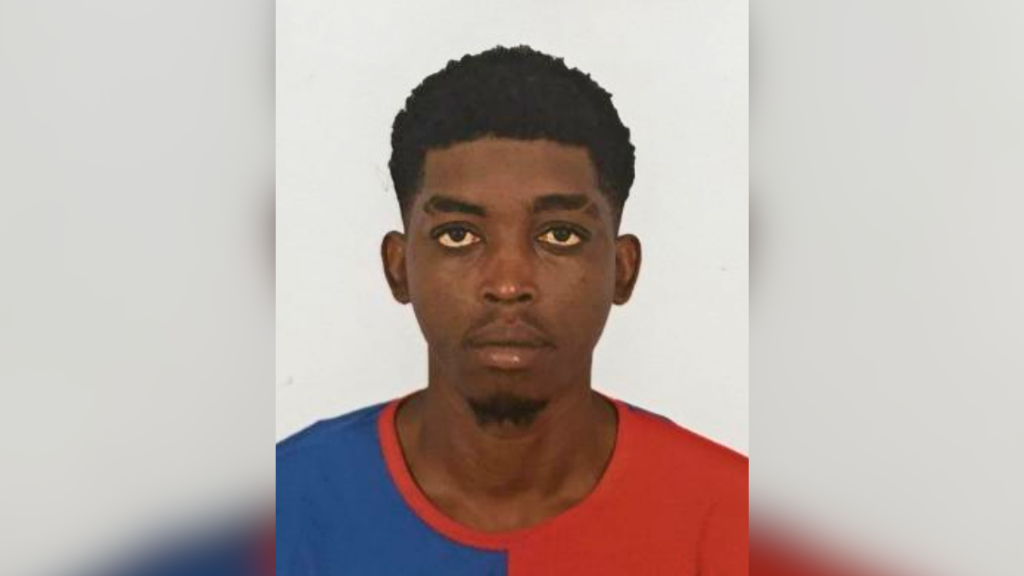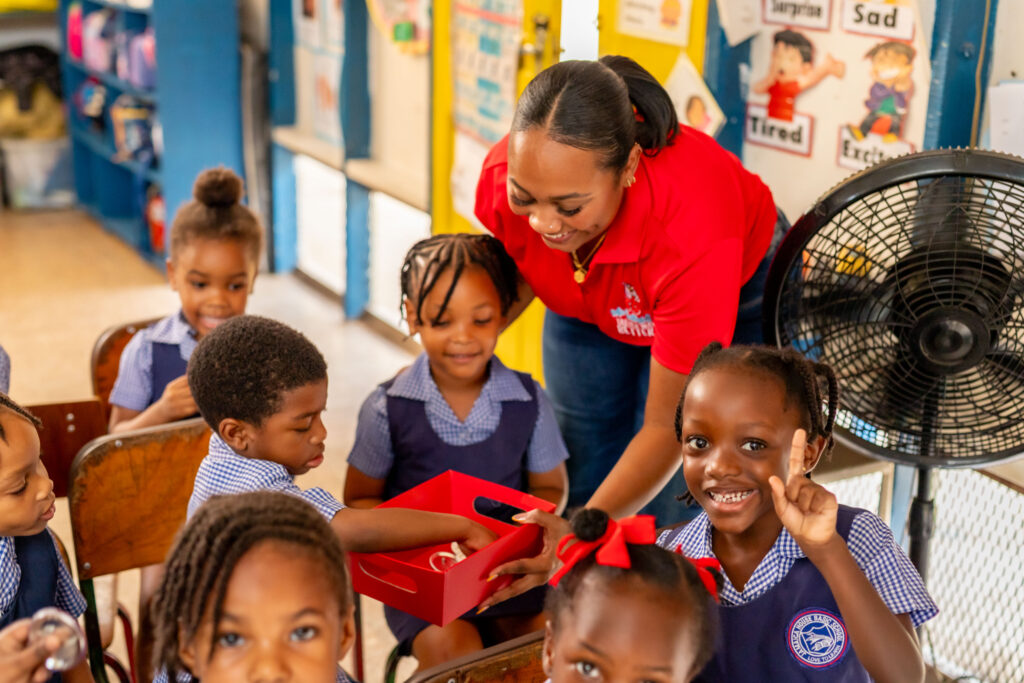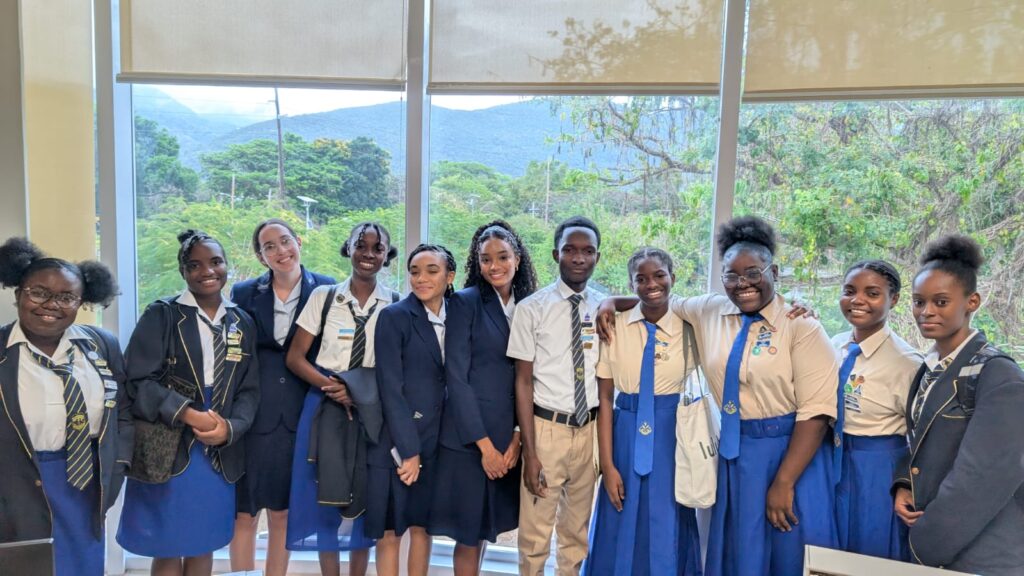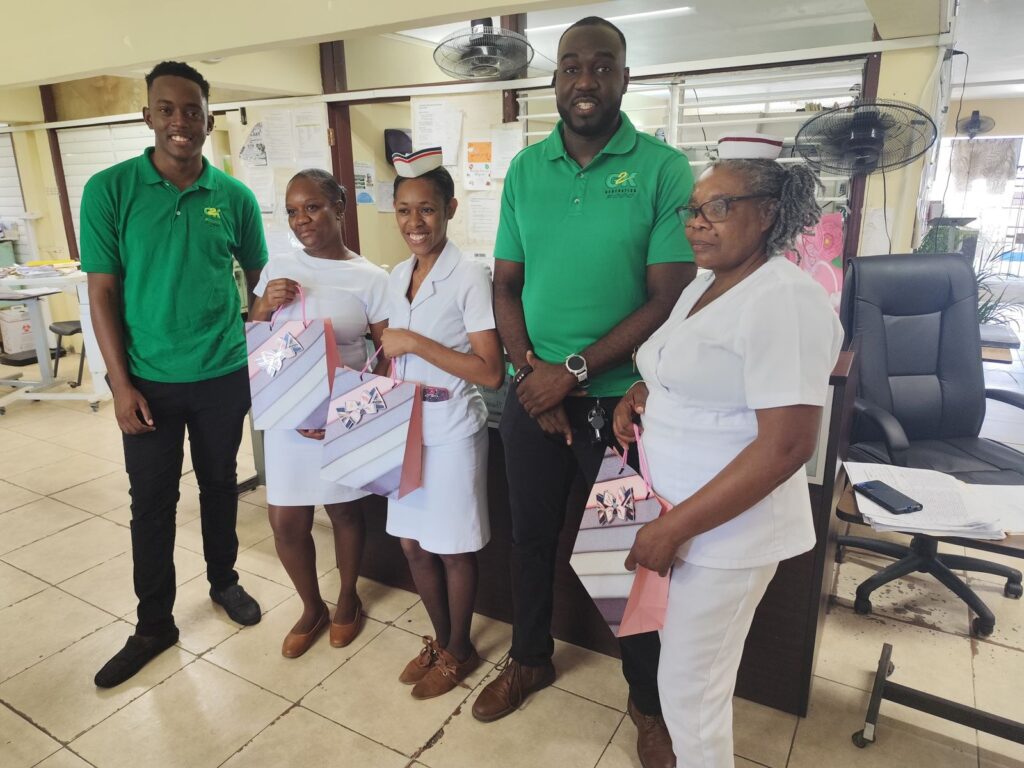Former rivals turned comrades, students from Clarendon College and Holy Childhood High School in Jamaica and students from St. Joseph’s Convent in Port of Spain, Trinidad and Tobago, gathered for a photo opportunity after the final competition. This event took place on April 25 at The UWI Regional Headquarters in Jamaica.
KINGSTON, Jamaica — Trinidad and Tobago clinched victory over Jamaica in the inaugural International Reparation Debate, hosted by the Centre for Reparations Research at The University of the West Indies.
Students from St Joseph’s Convent POS, a girls’ high school, successfully argued the motion, “This House believes that teaching the history of the transatlantic trafficking of enslaved Africans does more harm than good”, securing the winner’s title in the finals.
The competition final, held on April 25, was moderated by Jamaican journalist Dionne Jackson Miller at The UWI Regional Headquarters in Jamaica.
The panel of judges included British High Commissioner to Jamaica, Judith Slater and Professor Rupert Lewis, a member of Jamaica’s National Reparation Council. After a compelling exchange, St Joseph’s Convent emerged victorious against Jamaica’s Clarendon College, earning the title of grand champions.
The winning team received trophies and cash awards totalling approximately US$3,000. Additionally, the second, third and fourth-placed teams received similar prizes. Kellis Mitchell from St Joseph’s Convent was named the best debater of the grand finals and received a separate cash award.
Awards were also presented in various categories, including:
— Outstanding Male Debater: Sheldon Ramdhan, Barrackpore West Secondary School (Trinidad and Tobago);
— Best Overall Debater: Julianne Solomon, St Joseph Convent POS (Trinidad and Tobago);
— Best Reply Speaker: Honessa Clayton, Montego Bay High (Jamaica);
— Spirit Award: Kaysie Marin, Arima North Secondary (Trinidad and Tobago);
— Young Visionary Award: Clara Byford, Rawlins Academy (United Kingdom);
— Most Improved School: St Joseph Convent POS (Trinidad and Tobago); and
— Most Involved School: Glenmuir High School (Jamaica).
Professor Sonjah Stanley Niaah, director of the Centre for Reparation Research, stated, “This debate is more than a competition—it’s a movement. These students represent a generation that is thinking critically about justice and working boldly toward transformation.”
Meanwhile, Dr Hilary Brown, the programme manager (culture) and director of human and social development at the Caribbean Community (Caricom) Secretariat, encouraged students to continue researching and advocating for reparatory justice in their schools and communities.
The competition brought together students from across the Caribbean and the United Kingdom in a historic initiative aimed at engaging youth in critical discussions on reparatory justice, historical truth and global accountability. Since its inception, the initiative has provided a vibrant platform for education, research and advocacy among secondary school students.
The path to the finals was challenging for both teams. St Joseph’s Convent POS entered the finals as a wildcard after initially losing to Montego Bay High from Jamaica in the first round.
Clarendon College faced significant obstacles in the later rounds, narrowly overcoming strong debating challengers such as Montego Bay High and crowd favourite Queen’s College from Guyana.
The final debates showcased outstanding research, passionate delivery and sharp argumentation as both teams debated the need for a balanced, trauma-informed approach to teaching the history of transatlantic trafficking of Africans, highlighting the importance of including African civilisations and resistance leaders in the curriculum. Judges commended the students for their depth of knowledge and confidence in addressing complex issues.










